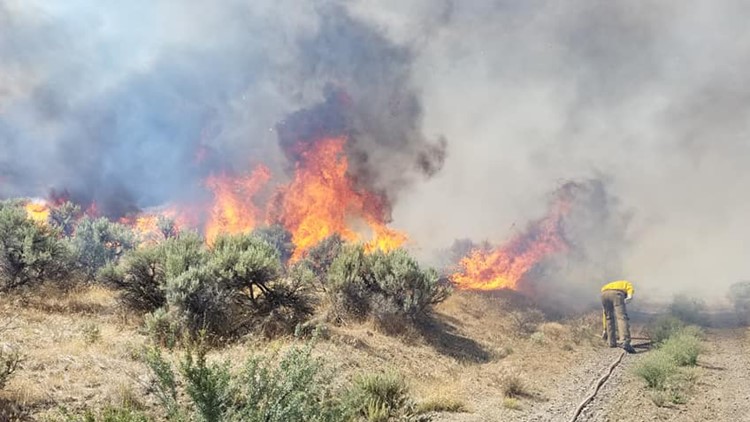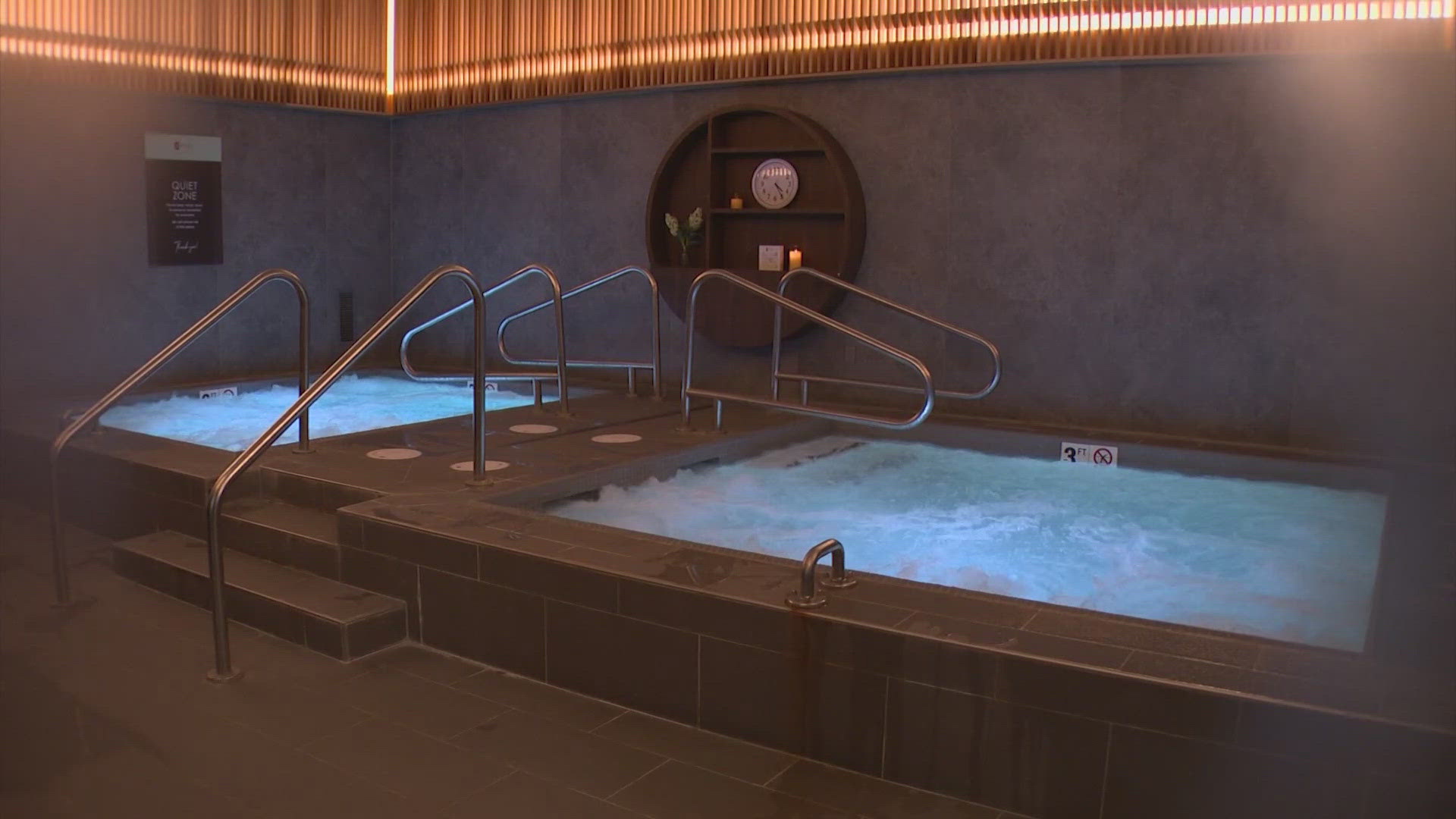One day after Governor Inslee declared a state of emergency for Washington state, the Department of Natural Resources announced a ban all outdoor burning effective Thursday.
The ban includes "burn piles, prescribed burns, and the use of charcoal briquettes." DNR said the ban will last until September 30, but that it could be extended or lessened depending on fire conditions.
Land managed by the federal government does not fall under the state ban. DNR advises campers to double check local restrictions before starting a fire.
The Washington Department of Fish and Wildlife also announced a temporary statewide ban on firearms on WDFW-managed lands. In eastern Washington, the following activities are also banned on Fish and Wildlife lands: campfires, smoking, welding, operating chainsaws and driving off-road. Visit WDFW for full details and changes to the prohibitions.
Just how bad are conditions? So far this year, firefighters have responded to 891 wildfires that have burned 113,000 acres, DNR said in a July 31 blog post.
The number of wildfires the DNR responded to has nearly doubled since the beginning of July.
“When the risk of wildfire is this high – and when so many of our firefighting resources are already committed – we must take significant steps to protect our communities and firefighters,” said Commissioner Hilary Franz. “I know this is an inconvenience, and I appreciate the public understanding that this is not a safe time for intentional burning within our forests.”
More than 75 percent of wildfires in Washington are caused by humans, according to the DNR.
Camping and recreating
- Only build campfires where authorized and when not under a burn ban; put them completely out before leaving camp, even for a few minutes; use plenty of water and stir until the coals are cold to the touch. Check locally before lighting a campfire as conditions may change and counties and local fire districts may have additional or new burn restrictions.
- Dispose of lit smoking materials appropriately.
- Fireworks, incendiary ammunition and exploding targets start fires and are illegal to use or discharge on public lands, including all state forests.
Vehicles and Towing
- Be sure chains and other metal parts aren't dragging from your vehicle or trailer. They can throw sparks and start fires.
- Make sure all off-road vehicles have a properly functioning and approved spark arrester.
- Be careful driving through or parking on dry grass or brush. Hot exhaust pipes can start the grass on fire. You may not even notice the fire until it’s too late.
- Check tire pressure and condition. Driving on an exposed wheel rim can cause sparks.
- Have brakes serviced regularly to prevent brake pads wearing too thin; metal on metal can spark or drop pieces of hot brake pad.



